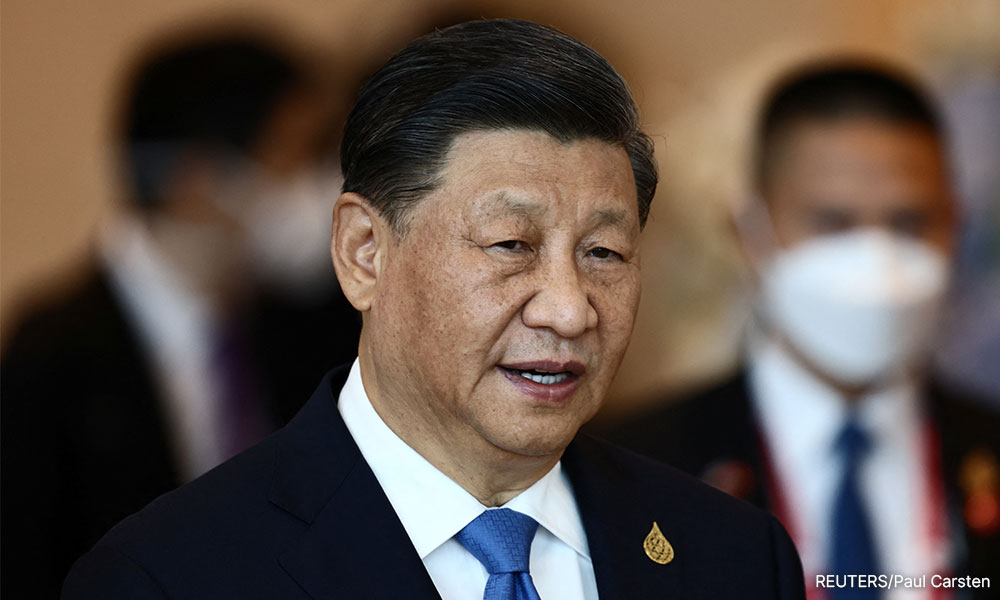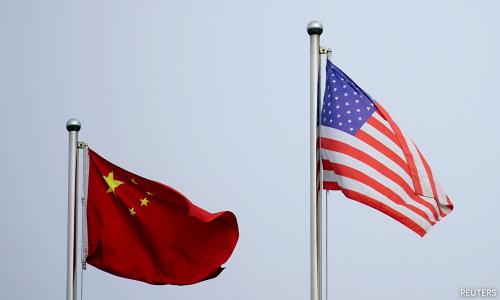US House panel on China cites 'existential struggle' at first hearing
A new US congressional select committee on competition with China held its first hearing with a focus on human rights on Tuesday, amid tense bilateral ties weeks after a suspected spy balloon that flew over North America was shot down.
"This is not a polite tennis match. This is an existential struggle over what life will look like in the 21st century — and the most fundamental freedoms are at stake," Representative Mike Gallagher, Republican chairperson of the House of Representatives Select Committee on the Chinese Communist Party (CCP), said as he opened the hearing.
The committee's leaders saw the hearing, the first of what is expected to be many over the next two years with Republicans holding control of the House, as part of an effort to convince Americans why they should care about competing with China, and to "selectively decouple" the US and Chinese economies.
"Over the last three decades, both Democrats and Republicans underestimated the CCP, and assumed that trade and investment would inevitably lead to democracy and greater security in the Indo-Pacific. Instead, the opposite happened," said Representative Raja Krishnamoorthi, the top Democrat on the select committee, in his opening remarks.
Chinese dissidents attended the hearing. In the last few days, Gallagher and other committee members attended several events to draw attention to human rights concerns, including a rally on Saturday outside what US officials call an illegal Chinese Communist Party "police station" in New York.
Gallagher sent a letter to the Federal Bureau of Investigation last week seeking information about such alleged police outposts.
China denies operating "police stations" on US soil.
Four witnesses
Tuesday's hearing had four witnesses, including HR McMaster, a retired Army lieutenant-general who was former Republican President Donald Trump's national security adviser, and Matt Pottinger, a long-time China hawk who was deputy national security adviser to Trump.
In his prepared remarks, Pottinger said the United States had no excuse for being "fooled" by Chinese leader Xi Jinping's "deep hostility toward the democratic West and the liberal international order."

He also said the committee must protect the rights of Chinese Americans by "standing up against bigotry and discrimination here at home".
"Protect, also, Chinese nationals studying and working in the United States so they can enjoy the freedoms that so starkly distinguish the American way of life from the increasingly oppressive atmosphere in China today," Pottinger said.
Although the committee is bipartisan, some Democratic lawmakers have voiced concerns that it could fuel anti-Asian sentiment within the United States. Krishnamoorthi referred to such concerns, and the need for bipartisanship, in his remarks.
Also testifying were Tong Yi, secretary to a prominent Chinese dissident who was jailed in China for more than two years, and Scott Paul, president of the Alliance for American Manufacturing.
US-China tensions going high
A desire for a hard line in dealings with Beijing is one of the few truly bipartisan sentiments in the deeply divided US Congress, with both Republicans and President Joe Biden's Democrats calling for increased efforts to counteract China's global influence.
US-China tensions have been especially high of late, over China's increasingly aggressive military posture toward Taiwan, talk that China may be supporting Russia's war against Ukraine, and on the US's shooting down of a Chinese balloon, suspected of spying over US territory, Feb 4.
Beijing has denied that the balloon was a government spy vessel.
House Republican Speaker Kevin McCarthy had promised he would create a select committee focused on China after Republicans took control of the chamber in January.
The select committee has 13 Republican and 11 Democratic members. It will not write legislation, but will draw attention to competition between the United States and China on a range of fronts and make recommendations for legislation.
- Reuters
RM12.50 / month
- Unlimited access to award-winning journalism
- Comment and share your opinions on all our articles
- Gift interesting stories to your friends
- Tax deductable

